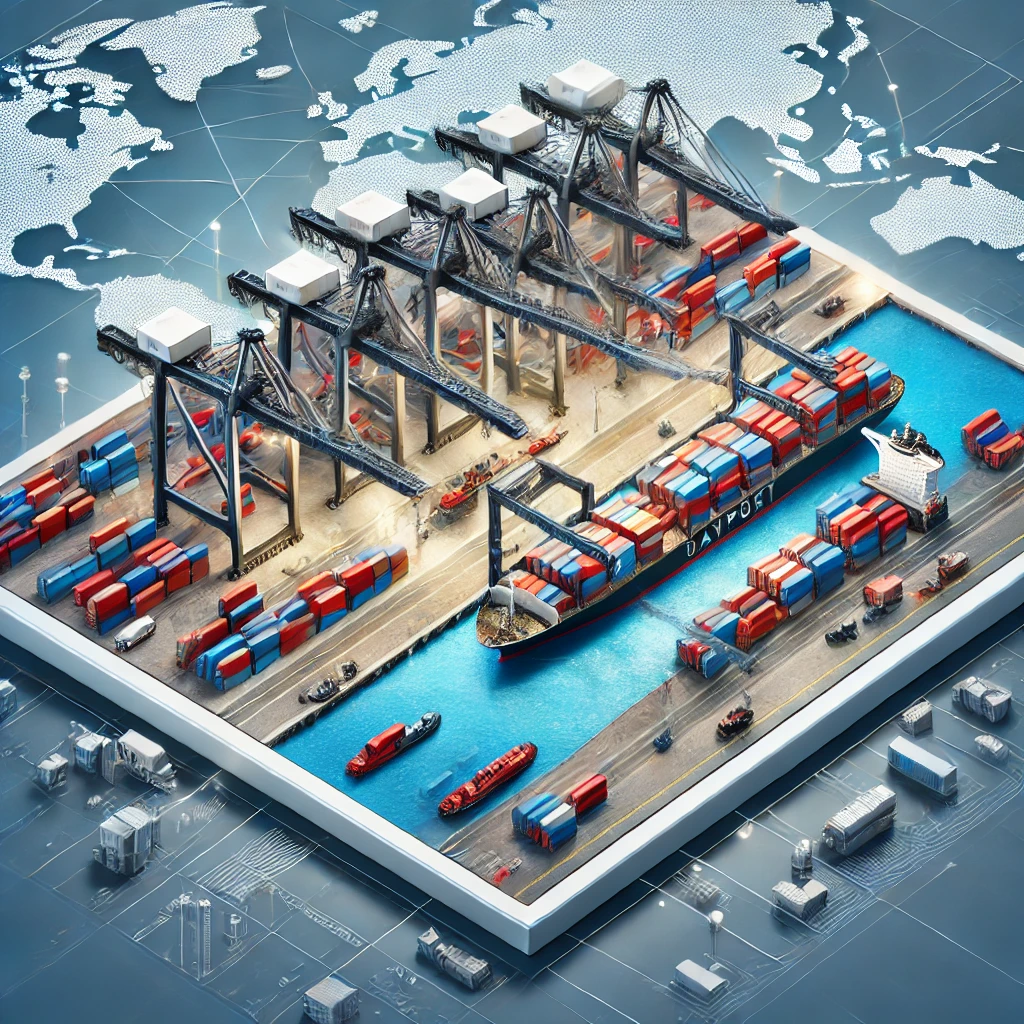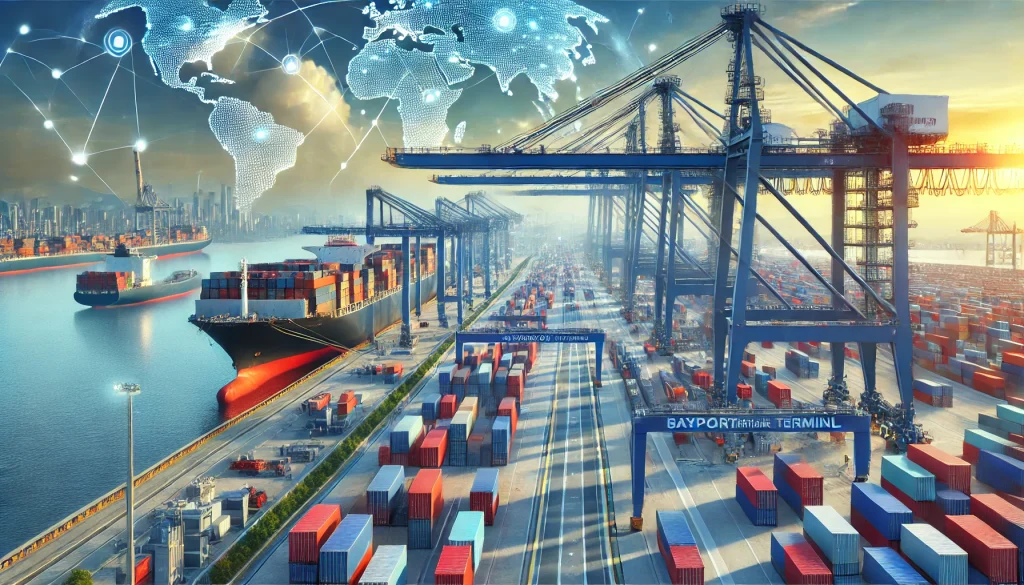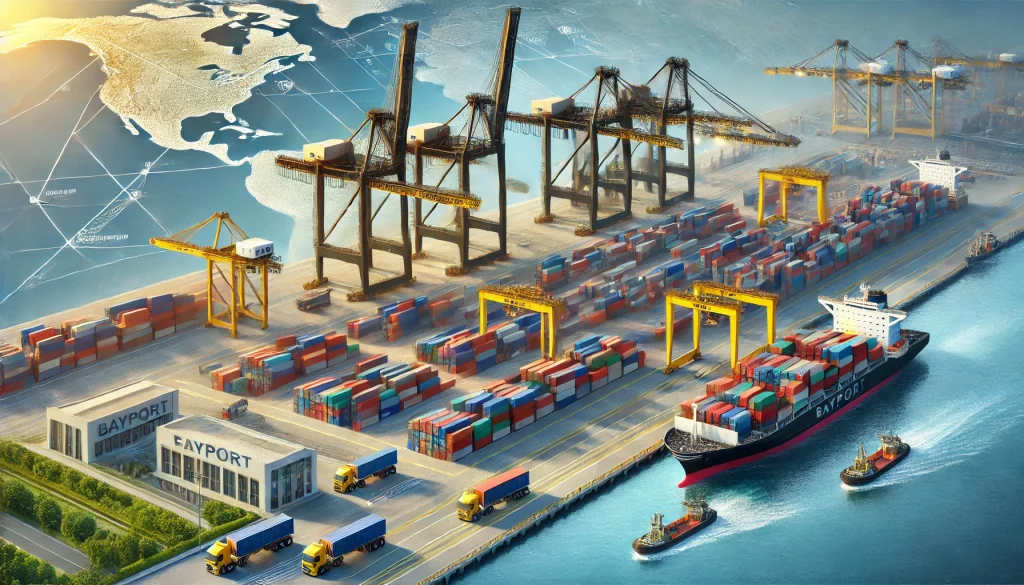Breaking Down Bayport Container Terminal: Key Features and Practical Uses

What is Bayport Container Terminal?
The Bayport Container Terminal is one of the key facilities within the Port of Houston, designed to handle containerized cargo. The terminal is strategically located along the Houston Ship Channel, allowing it to accommodate large container vessels and support the flow of goods from international markets to the U.S. It operates as an intermodal transportation hub, linking ocean-going vessels with land-based transport systems such as trucks and rail.
Key Features of Bayport Container Terminal
1. Advanced Infrastructure
Bayport boasts modern infrastructure that includes:
- High-capacity cranes for efficient container loading and unloading.
- Ample container storage for the efficient handling and storage of large volumes of goods.
- Efficient rail and truck connections to expedite the movement of goods to and from the terminal.
This infrastructure ensures that Bayport is capable of handling the ever-growing demands of international trade and logistics.
2. Strategic Location
Located in the Port of Houston, Bayport is strategically positioned on the Houston Ship Channel, one of the busiest ports in the U.S. This location provides direct access to the Gulf of Mexico and allows Bayport to serve a wide range of international markets, making it an ideal gateway for goods entering and exiting the U.S.
- Proximity to Major Trade Routes: The terminal’s location on the Houston Ship Channel enables it to connect easily to international shipping routes, facilitating the movement of goods to and from key markets around the world.
- Access to Road and Rail Networks: Bayport is connected to extensive road and rail networks, allowing goods to be quickly distributed to other regions of the U.S. and beyond.
3. Technology-Driven Operations
Bayport Container Terminal leverages cutting-edge technologies to ensure the smooth operation of its services. These include:
- Automated container handling systems for quicker and more efficient loading and unloading.
- Real-time tracking of containers to keep businesses updated on the status of their shipments.
- Data analytics tools to optimize operations, reduce delays, and enhance overall efficiency.
By using advanced technologies, Bayport improves productivity, reduces operational costs, and enhances its overall competitiveness in the global shipping market.
4. Environmentally Friendly Practices
Bayport is committed to sustainability, incorporating green initiatives such as:
- Energy-efficient equipment to reduce its carbon footprint.
- Dust suppression systems to minimize the environmental impact of terminal operations.
- Eco-friendly container storage solutions that comply with environmental regulations.
This focus on sustainability ensures that Bayport remains competitive while adhering to environmental standards and regulations.

Practical Uses of Bayport Container Terminal
1. Import and Export Operations
Bayport is integral to businesses involved in both import and export operations. It handles a significant amount of containerized cargo, connecting U.S. businesses to international markets and enabling the seamless flow of goods across borders.
- Efficient Processing of Imports: Bayport’s advanced technology and infrastructure make it an ideal location for processing imports efficiently, ensuring quick turnaround times for containers and minimizing delays.
- Optimized Export Handling: For exporters, Bayport provides a streamlined process for the loading of containers onto vessels, ensuring that goods reach international markets promptly.
2. Intermodal Connections
Bayport serves as a vital link in the intermodal transportation network, connecting ocean-going vessels with rail and trucking services. This makes it an essential point for moving goods to and from inland areas of the U.S.
- Rail Connections: Bayport has direct rail connections that allow goods to be transported by train to various U.S. locations. This facilitates the efficient movement of bulk goods over longer distances.
- Truck Access: The terminal is also well connected to major highways, allowing for smooth transportation of goods via truck to their final destinations.
3. Supply Chain Optimization
Bayport helps optimize the supply chains of businesses by offering faster processing times and ensuring that goods are delivered in a timely manner. The terminal’s strategic location and technology-driven processes enable businesses to reduce lead times and enhance the efficiency of their logistics operations.
- Reduced Transit Times: With its state-of-the-art infrastructure and technology, Bayport minimizes delays in the shipping process, ensuring faster transit times for both importers and exporters.
- Cost Reduction: By offering more efficient container handling and better utilization of resources, Bayport helps reduce overall supply chain costs.
4. Support for Major Industries
Bayport Container Terminal is crucial for industries such as automotive, electronics, chemicals, and consumer goods, offering a reliable and efficient gateway for the import and export of products.
- Automotive Industry: Bayport plays a key role in facilitating the import and export of vehicles and automotive parts, serving as a critical link in the automotive supply chain.
- Consumer Goods: For businesses involved in retail or wholesale distribution, Bayport provides a fast and reliable way to transport large volumes of consumer goods.

Why Bayport Container Terminal is Relevant for Businesses
1. Efficiency and Productivity
Bayport’s advanced infrastructure, technology-driven operations, and strategic location ensure that businesses can move their goods quickly and efficiently. This enables businesses to meet tight deadlines and maintain competitive advantage in global markets.
2. Cost Savings
By utilizing Bayport’s intermodal connections, businesses can lower their transportation costs. The terminal’s efficient operations also reduce delays, helping businesses minimize expenses related to storage, demurrage fees, and missed deadlines.
3. Global Reach
Bayport serves as a key gateway for goods entering and leaving the U.S., providing businesses with access to international markets. By using Bayport, companies can expand their reach and establish a strong presence in global trade.
4. Environmental Compliance
Bayport’s commitment to sustainability ensures that businesses operating there can meet environmental standards while reducing their own carbon footprints, making the terminal an attractive option for eco-conscious companies.

Conclusion
Bayport Container Terminal is a vital asset in the global shipping industry, offering a combination of advanced technology, strategic location, and environmentally-friendly practices that benefit businesses involved in import and export operations. Whether it’s facilitating faster container processing, reducing costs, or improving supply chain efficiency, Bayport’s impact on the logistics sector cannot be overstated.
For businesses looking to optimize their logistics operations, Bayport Container Terminal provides a reliable and efficient solution to meet the demands of modern global trade
